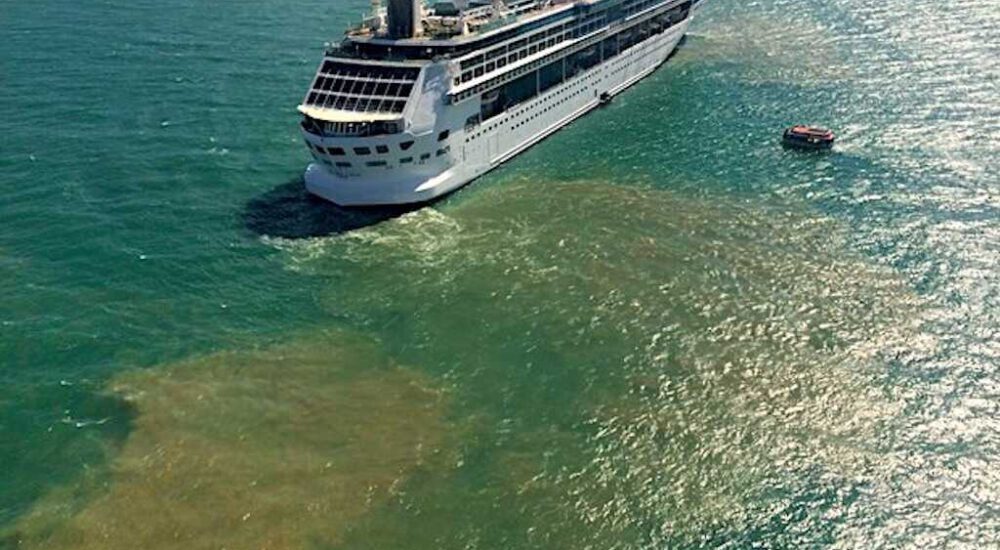Yes, cruise ships contribute to ocean pollution in many ways.
How bad are cruise ships for environment

The filthy fuel (called marine gas oil) means the big diesel engines on cruise ships emit tons of toxic smog that people on board and in port cities have to breathe.
And while the smog is the most obvious in port, cruise ships also emit tons of greenhouse gases. (Cruising is actually worse for the climate than flying.
Cruise ships have gained immense popularity as a means of leisure travel and exploration of the high seas. However, concerns have been raised about the environmental impact of these massive floating resorts.
This article aims to shed light on whether cruise ships contribute to ocean pollution and what measures are being taken to minimize their ecological footprint.
The Impact of Cruise Ships on Ocean Pollution
Cruise ships can have a significant impact on ocean pollution due to various factors. One of the primary concerns is wastewater discharge.
These massive vessels generate tons of waste and sewage daily. While some ships have advanced treatment systems, many still release these materials directly into the ocean, leading to the contamination of marine ecosystems.
In addition to wastewater, air pollution from cruise ships is another major concern. These ships rely on heavy fuel oils, which emit large quantities of harmful pollutants such as sulfur dioxide, nitrogen oxides, and particulate matter.
These emissions contribute to air pollution and can have detrimental effects on both human health and marine life.
Furthermore, the disposal of solid waste is another issue. Cruise ships produce large amounts of garbage, including plastic, food waste, and other non-biodegradable materials. If not managed properly, this waste can end up in the ocean, causing harm to marine animals and ecosystems.
Steps Taken to Mitigate Cruise Ship Pollution
Aware of the environmental concerns, the cruise industry has taken steps to minimize the pollution caused by these floating behemoths. One significant effort has been the use of advanced wastewater treatment systems. These systems treat the sewage produced on board, significantly reducing the level of pollutants before discharge into the ocean.
Furthermore, cruise lines are gradually transitioning to cleaner fuels to reduce air pollution. Many ships are switching from heavy fuel oils to liquefied natural gas (LNG) or low-sulfur fuels, which emit fewer harmful pollutants. This shift towards cleaner fuels is a positive step in minimizing the environmental impact of cruise ships.
To address the issue of solid waste, cruise lines have implemented comprehensive recycling and waste management programs on board.
These programs encourage passengers to recycle and dispose of waste responsibly, reducing the amount of garbage that enters the ocean. Some cruise lines have even pledged to eliminate single-use plastics on their ships.
Regulations and International Agreements
The cruise industry is subject to various national and international regulations aimed at reducing pollution. The International Maritime Organization (IMO) has established regulations to limit the sulfur content in ship fuels, known as the sulfur cap. This cap aims to reduce sulfur emissions and air pollution from ships.
Furthermore, some regions, such as Alaska and the Baltic Sea, have implemented stricter regulations on wastewater discharge and air emissions from cruise ships. These regulations require ships to meet specific environmental standards and use advanced technologies to reduce pollution.

Frequently Asked Questions:
Do Cruise Ships Pollute The Ocean?
Cruise ships can contribute to ocean pollution through emissions, sewage discharge, and waste disposal. Proper regulations are essential to mitigate their impact.
How Do Cruise Ships Impact The Environment?
Cruise ships can harm the environment by emitting greenhouse gases, dumping wastewater, and releasing pollutants into the ocean. Adopting eco-friendly practices can reduce their impact.
What Measures Are Taken To Minimize Cruise Ship Pollution?
To minimize pollution, cruise ships use advanced wastewater treatment systems, employ clean fuel technologies, and follow strict international regulations regarding waste disposal and emissions.
Are Cruise Ship Emissions Harmful?
Cruise ship emissions contain harmful pollutants, including sulfur oxides and nitrogen oxides, which can contribute to air pollution and have negative health effects, especially in port areas.
Conclusion
While the cruise industry does contribute to ocean pollution, steps are being taken to mitigate its negative impact. Advanced wastewater treatment systems, the transition to cleaner fuels, and comprehensive waste management programs are helping cruise ships become more environmentally friendly. Additionally, regulations and agreements are ensuring that ships adhere to specific pollution reduction standards.
It is crucial for both cruise lines and passengers to be aware of the environmental impact and take responsibility for sustainable travel practices. By working together, we can ensure that cruise ships continue to provide enjoyable experiences without compromising the health of our oceans.

